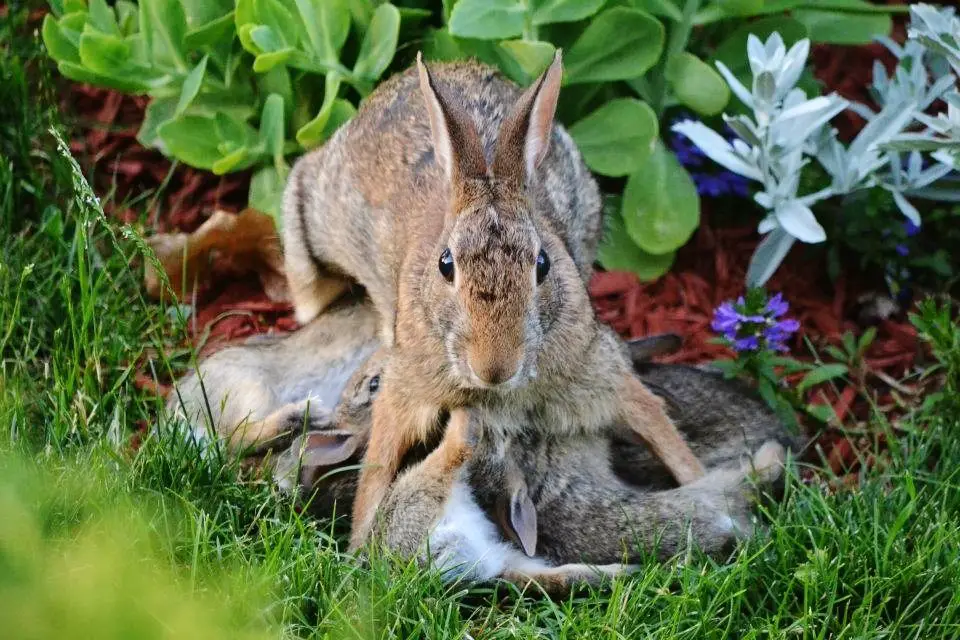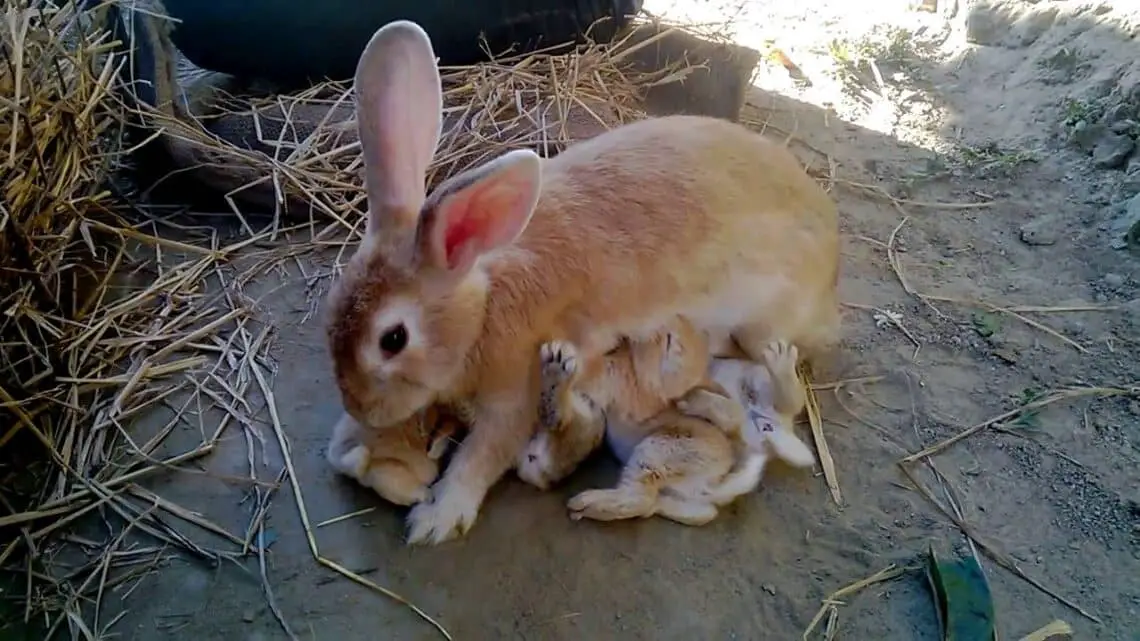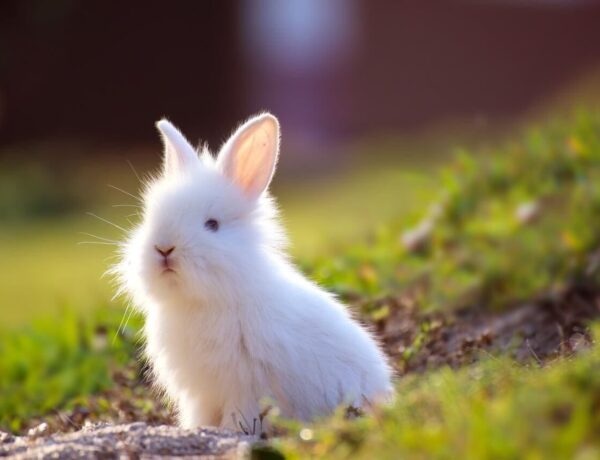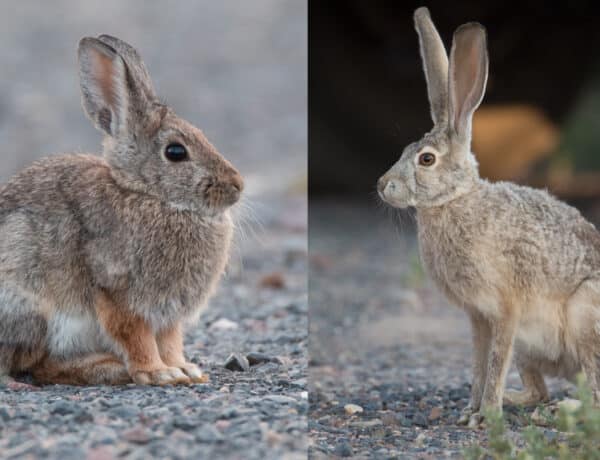Introduction
What To Feed Wild Rabbits: In the enchanting realm of the great outdoors, encounters with wildlife are both captivating and heartwarming. When it comes to wild rabbits, knowing what to feed these furry friends can contribute to their well-being and the harmonious balance of their ecosystem. From meadows to forests, understanding the dietary needs of wild rabbits becomes a crucial endeavor. Let’s embark on a journey to explore what to feed these gentle hoppers and how we can play a part in nurturing their natural world.
Wild rabbits, with their delicate presence and endearing hops, have specific dietary requirements that are essential for their survival and health. While they primarily forage for their own food, there are certain considerations to keep in mind if you want to provide supplementary nourishment to these creatures. Here’s a closer look at what to feed wild rabbits:
Hay is a natural and essential component of a wild rabbit’s diet. It provides the necessary fiber that aids in digestion and maintains the health of their teeth. Meadow hay or grass hay is ideal, as it closely resembles the vegetation they would naturally encounter. Placing piles of fresh hay in areas where wild rabbits hibernate frequent can give them a nutritious option to supplement their diet.

Will wild rabbits eat carrots?
Wild animals aren’t necessarily chowing down on what you might think. Everybody knows that bunnies eat carrots, right? Except they don’t, really. In the wild, rabbits aren’t in the habit of digging up root vegetables such as carrots, potatoes and beets. They much prefer wild greens, such as grasses and clover.
Cultural Icon and Reality: A Dichotomy
Carrots have become a cultural icon closely associated with rabbits, partly due to their portrayal in popular media. However, the truth is that while rabbits are known to nibble on various types of vegetation, their natural diet differs from the typical image of a rabbit munching on a carrot.
Natural Diet: Herbs, Grasses, and More
Wild rabbits are primarily herbivores, relying on a diet rich in grasses, herbs, and other leafy vegetation. In their natural habitats, they forage for a variety of plant materials that provide the necessary fiber, nutrients, and water content they need for survival. These foods align with their evolved dietary preferences and digestive systems.
Carrots as Treats: Occasional Indulgence
While wild rabbits do not naturally encounter carrots in their native habitats, they are not averse to eating them. Carrots are indeed a source of nutrients, particularly vitamin A and beta-carotene. However, offering carrots to wild rabbits should be done in moderation, treating them as occasional snacks rather than staple foods.
Can you feed a wild rabbit milk?
Feed The Rabbits
There are different opinions on what type of milk you should feed them, how often and how to do it. However, goat milk or kitten milk replacer is typically the milk of choice. NEVER feed them cow’s milk. Just remember, wild bunny food is different than domestic bunny food.
Natural Diet and Digestive System
Wild rabbits are herbivores with specialized digestive systems adapted for processing plant material. Their bodies are not equipped to digest dairy products like milk. In fact, feeding milk to wild rabbits can lead to digestive disturbances and upset stomachs, causing more harm than good.
Lactose Intolerance
Like many adult mammals, wild rabbits are lactose intolerant. Lactose is the sugar found in milk, and rabbits lack the necessary enzymes to break it down effectively. Feeding milk to wild rabbits can result in discomfort, bloating, and diarrhea, which can be detrimental to their health, especially in vulnerable young rabbits.
Appropriate Care for Young Rabbits
If you come across young rabbits in the wild, it’s important to approach the situation with care and knowledge. Baby rabbits, known as kits, are dependent on their mothers for nourishment and care. If you suspect that a young rabbit has been orphaned, it’s best to contact a local wildlife rehabilitator or animal rescue organization. These professionals have the expertise to provide appropriate care and ensure the best chance of survival for the young rabbits.
Is it OK to feed wild rabbits?
However, if you want to occasionally scatter some leftover leafy greens in the yard for wild rabbits to eat, there is nothing wrong with that. Leftover herbs, strawberry or carrot tops, or the trimmed ends of many different fruits and vegetables are safe for wild rabbits to eat in small quantities.
Ecological Impact: Disruption of Natural Behaviors
Feeding wild rabbits, while well-intentioned, can disrupt their natural behaviors and feeding patterns. When animals become accustomed to human-provided food, they might rely less on foraging for their natural diet, which can lead to nutritional imbalances and dependency. This alteration in their behavior can affect their role in the ecosystem, potentially leading to overpopulation and competition for resources.
Health and Nutrition: A Balancing Act
The types of foods humans typically offer to wild rabbits might not align with their nutritional needs. Wild rabbits have evolved to thrive on specific diets of grasses, herbs, and other vegetation found in their natural habitats. Feeding them inappropriate foods can lead to health issues, such as digestive disturbances, obesity, and even diseases.
Human Interaction: Altered Behavior
Feeding wild rabbits can also alter their perception of humans. When animals associate humans with food, it can lead to animals approaching humans more closely or even becoming aggressive in their pursuit of food. This shift in behavior can pose risks to both animals and humans.
Is cow milk good for rabbits?
Why You Should NEVER Give Milk To Rabbits
You should not give rabbits milk to drink. Adult rabbits are lactose intolerant and milk products are bad for the rabbit’s digestive system. Baby rabbits should also not have cow’s milk because it is very different from the milk they get from their mothers.
Dietary Mismatch: Herbivores vs. Dairy
Rabbits are herbivores, which means their natural diet is composed of plant materials such as grasses, herbs, and leafy vegetation. Their digestive systems are specifically adapted to process these types of foods efficiently. Cow’s milk, on the other hand, is intended for young cows and is rich in lactose, a sugar that rabbits struggle to digest properly.
Lactose Intolerance: A Common Issue
Rabbits, like many adult mammals, are lactose intolerant. This means they lack the necessary enzymes to effectively break down lactose, the sugar found in milk. Offering cow’s milk to rabbits can lead to digestive disturbances, including bloating, gas, and diarrhea, which can be harmful to their health, particularly in young or vulnerable individuals.
Nutritional Imbalance: Inadequate Nutrition
Beyond lactose intolerance, cow’s milk does not provide the essential nutrients that rabbits require for their well-being. It lacks the fiber, vitamins, and minerals that are integral to their health. Feeding cow’s milk to rabbits can lead to nutritional imbalances and deficiencies that affect their overall growth and vitality.
Health Risks: Avoiding Harm
If you’re concerned about the well-being of a rabbit, it’s important to provide appropriate care based on their dietary needs. If a young rabbit is found orphaned or in need of nourishment, it’s best to contact a local wildlife rehabilitator or veterinarian. These professionals can offer guidance on proper care and nutrition, ensuring the rabbit’s health and growth.
What is a substitute for rabbit milk?
Baby rabbits should be fed Kitten Milk Replacer (KMR) or goat milk, which you can buy at pet stores, or sometimes even a local veterinarian’s office. Because rabbit milk is the most caloric of all mammals, we add in one tablespoon of 100% heavy whipping cream (no sugar) to each can of KMR.
The Unique Challenge: Orphaned Kits
Orphaned rabbit kits, those adorable bundles of fur, often require special care and nourishment if their mother is unable to provide milk. In these situations, finding a substitute that aligns with their nutritional needs is essential for their survival.
Commercially Prepared Formulas: A Viable Choice
Commercially prepared milk replacers formulated specifically for orphaned rabbits can be a suitable substitute for rabbit milk. These formulas are designed to mimic the composition of mother’s milk, providing the essential nutrients, vitamins, and minerals that young kits need for proper growth and development.
Goat Milk: A Natural Alternative
If commercial formulas are not readily available, goat milk can serve as a viable natural alternative to rabbit milk. Goat milk is relatively close in composition to rabbit milk, making it a more suitable option compared to cow’s milk. However, it’s important to dilute goat milk appropriately to match the composition of rabbit milk and avoid potential digestive issues.
Dilution and Supplementation: Precision Matters
When using a substitute for rabbit milk, it’s crucial to dilute it to match the nutritional composition of rabbit milk. This ensures that the kits receive the right balance of nutrients without overloading their delicate digestive systems. Additionally, consulting with a veterinarian or wildlife rehabilitator is recommended to determine the appropriate feeding schedule and quantities.
What do rabbits drink?
water
Rabbits need: Fresh clean drinking water continuously, checked twice daily. Ensure water doesn’t freeze in winter.
In the wild, rabbits often find water in natural sources such as streams, rivers, ponds, and dew-covered plants. They may also obtain moisture from the vegetation they consume, especially during periods of high water content, such as early mornings or after rainfall.
Captive Care: Water Availability
For pet rabbits or rabbits in captivity, providing access to clean water is a primary responsibility of their caregivers. Water should be available at all times in a clean water dispenser or shallow dish. This ensures that rabbits can quench their thirst whenever they need to, mimicking their natural behavior.
Water Preferences: Fresh and Clean
Rabbits are known for their sensitivity to changes in their environment, and this extends to their water preferences. They prefer fresh, clean, and odorless water. Regularly changing and cleaning their water dispenser is essential to encourage them to drink and maintain their health.
What milk is best for rabbits?
FEEDING BABY RABBITS
Instead of cow’s milk, use KMR (Kitten Milk Replacer) or Goat’s milk. When you give goat’s milk be sure it is warm. Rabbits are in a class by themselves. They need a pinch of acidophilus powder to digest their formula and lactate will also have to be added.
The Challenge of Milk Substitutes
Orphaned rabbit kits or those in need of supplemental nourishment require milk substitutes that closely mimic the composition of mother’s milk. Finding an appropriate milk substitute is essential for their growth and development.
Commercial Milk Replacers: Formulated Precision
Commercially prepared milk replacers designed specifically for rabbits are often the best choice for providing the necessary nutrients and vitamins to young kits. These formulas are meticulously formulated to mimic the nutritional profile of mother’s milk, ensuring that kits receive the right balance of proteins, fats, and other essential components.
Goat Milk: A Natural Alternative
If commercial milk replacers are not available, goat milk can be considered as a more natural alternative. Goat milk shares some similarities with rabbit milk in terms of nutritional composition, making it a suitable choice in the absence of specialized formulas. However, it’s important to dilute goat milk properly to match the nutritional needs of rabbit kits.
Precision and Dilution: Essential Factors
When using milk substitutes for rabbit kits, precision is key. Diluting milk replacers or natural alternatives to match the nutritional content of mother’s milk is crucial for providing kits with the best chance of growth and development. Consultation with wildlife rehabilitators or veterinarians is recommended to ensure accurate dilution ratios.
Do rabbits ever sleep?
Rabbits are nocturnal animals, which means they sleep most of the time during the day and are active at night. Their lifestyle can be a little confusing for rabbit owners, as they may seem to sleep much more than other pets. But in reality, rabbits need it to rest and prepare for a night of activity.
The Sleep-Wake Cycle: Crepuscular Creatures
Rabbits, like many creatures in the animal kingdom, exhibit crepuscular behavior. This means they are most active during the early morning and late afternoon or evening hours, leaving the daytime for more subdued activities. This behavior is attributed to their evolutionary adaptation to avoid predators, as the twilight hours offer some degree of cover while they feed and explore.
Napping and Alertness: Vigilant Guardians
While rabbits may not engage in long, continuous periods of sleep like humans, they do experience bouts of rest throughout the day and night. These periods of rest are often referred to as naps, where rabbits enter a state of reduced activity and alertness while remaining poised to respond to any potential threats. This vigilance is crucial for their survival in the wild.
REM and Deep Sleep: Elusive Phenomena
Rabbits do experience Rapid Eye Movement (REM) sleep, which is associated with dreaming and deep sleep in humans. However, their REM sleep is minimal and intermittent, and it occurs in short bursts. The majority of their sleep is light and characterized by brief periods of alertness.

Conclusion
As we conclude our exploration into the world of feeding wild rabbits, we find ourselves at the intersection of care and conservation. Providing nourishment to these gentle hoppers is not merely an act of kindness, but a way to play a part in maintaining the delicate balance of nature’s tapestry. By understanding their dietary needs and preferences, we can contribute to their well-being while respecting their wild instincts.
Remember, the key lies in offering a supplementary diet that complements their natural foraging behaviors. From fresh greens and wild plants to meadow hay and clean water sources, the choices we make can impact their lives in meaningful ways. Yet, our responsibility goes beyond their nourishment – it extends to fostering an environment that respects their autonomy and the sanctity of their natural habits.
As we venture into open meadows, watch rabbits nibble on grasses, and marvel at their graceful hops, let us do so with a sense of reverence and wonder. Feeding rabbits is a gesture that bridges our world with theirs, reminding us of the interconnectedness of all life forms. Through mindful actions and careful consideration, we can help ensure that these furry companions continue to grace our landscapes with their presence for generations to come.





No Comments